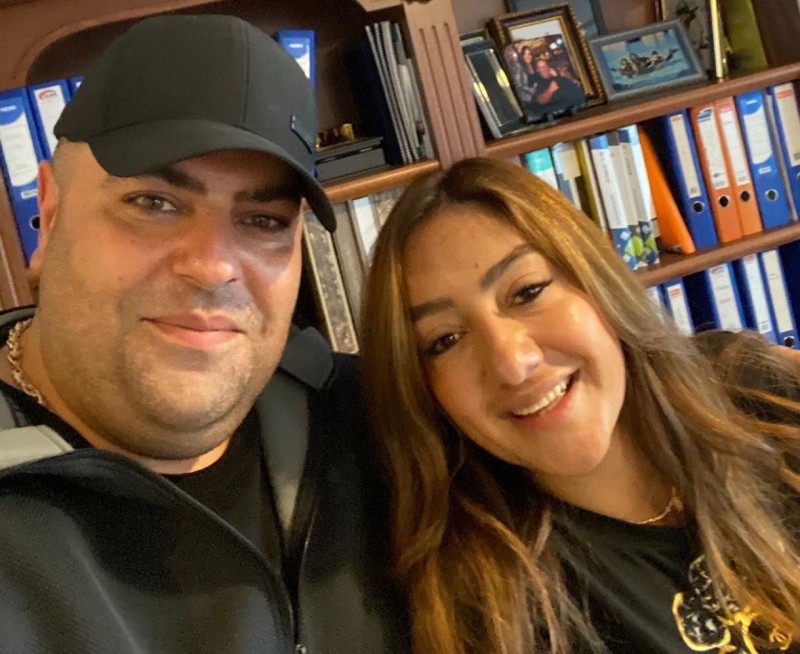By Daiva Repečkaitė and Julian Bonnici
- Halil Falyalı, a late Turkish Cypriot businessman allegedly behind an illegal betting empire, used Binance to move millions of funds.
- Turkish financial crimes investigators’ report listed around 100 cryptocurrency wallets they said were used by the group to transfer the “revenues of crime.”
- Over $29 million passed through Falyalı’s Binance Global accounts.
- The account with Binance Global was opened when Binance was not licensed to operate as a financial service provider in Malta.
- Falyalı’s widow says he declared crypto assets abroad worth €30 million, $10 million and £10 million in various cryptocurrencies.
- Using blockchain records, reporters found that the known wallets of the network received more than €1.3 billion since 2018.
Halil Falyalı, a late Turkish Cypriot businessman allegedly behind an illegal betting empire, is believed to have moved his money using the Malta-based cryptocurrency exchange Binance, a collaborative investigation by Amphora Media and Times of Malta has revealed.
Falyalı, who was once indicted in absentia in the US in 2015 for allegedly laundering drug money, was murdered in 2022 when his car was ambushed by gunmen with automatic weapons.
The workings of his alleged illegal gambling network and its links to Malta were recently revealed in a collaborative investigation between OCCRP, Amphora Media, Times of Malta and other media partners.
A 2022 Turkish financial crimes investigators’ report listed around 100 cryptocurrency wallets they said were used by the group to transfer the “revenues of crime”.
The report identified Binance TR – the Turkish branch of Binance – as one of the three crypto asset service providers used by the network. Using these providers, individuals within the network collected transfers from others and then forwarded them into accounts held by crypto asset service providers. Investigators noted that over $29 million passed through Falyalı’s Binance Global accounts.
Using blockchain records, reporters found that the known wallets of the network received more than €1.3 billion since 2018.
In December last year, Turkish prosecutors indicted more than 240 people, including Falyalı’s widow, on illegal gambling and money laundering charges. The posthumous indictment accused Falyalı of “establishing an organisation with the aim of committing crime.”

Turkish investigators asked the Binance branch in Malta to identify the owner of an account central to the crypto transfers. Binance confirmed that the cryptocurrency wallet belonged to Halil Cahit/Djahit, a Cypriot citizen.
Investigators were able to confirm that Djahit is an alias of Halil Falyalı. Halil Djahit was Falyalı’s name on his Greek Cypriot ID. Meanwhile, Falyalı submitted a copy of his Cypriot passport and a selfie to open his account.
After Falyalı’s death, investigators noted that his widow made a large withdrawal from his Binance account. In her testimony upon indictment, Özge Taşker Falyalı confirmed that she held a wallet at Binance Global under her maiden name – and that her husband had declared crypto assets abroad worth €30 million, $10 million and £10 million in various cryptocurrencies. She denied the charges against her.
The report suggests that the account was opened with the Malta-based Binance Global on 26th November 2020 – when Binance was not licensed to operate as a financial service provider in Malta.
Read more of the Betting on Billions investigation.
Investigators also believe the detected transactions are only a fraction of the money movements within this network.
Cemil Önal, Falyalı’s longtime head of finance who is facing charges linked to illegal gambling and faces broader claims of being “one of the masterminds” of Falyalı’s murder, says that the network allegedly earned €75 million a month, while authorities have seized around €40 million in assets.

Speaking to our partners OCCRP, Önal claims that Falyalı’s network also used so-called cold wallets, devices for storing cryptocurrency keys offline, without connecting them to the internet.
Recipients of betting revenues would transfer their cryptocurrency assets into these wallets. These devices are then physically transported, and the money is cashed.
In response to reporters’ questions about the alleged illegal betting tycoon’s accounts, a representative of Binance said, “Binance aims to set a high standard for compliance across the industry, proactively detecting and preventing illicit activity both on and off our platform. We work closely with law enforcement and industry partners to enhance security and regulatory compliance. This includes advanced AI-driven identity verification, ensuring a robust and effective Know Your Customer (KYC) process.”
In 2023, Binance’s co-founder and, at the time, majority owner Changpeng Zhao pleaded guilty to failing to maintain an effective anti-money laundering programme in the US. In his plea, Zhao admitted telling employees that it was “better to ask for forgiveness than permission”.
A base in Malta
Binance moved to Malta in 2018, taking advantage of the welcoming environment for cryptocurrency companies at the time.
In 2018, Malta adopted an act which provided a grace period to cryptocurrency operators of 12 months to apply for an appropriate licence. Within months from opening, Binance signed an agreement with the Malta Stock Exchange “to launch a new digital exchange for security token trading”.
However, the company never acquired the licence to operate in financial services, and in February 2020, the Malta Financial Services Authority (MFSA) issued a statement that “Binance is not authorised by the MFSA to operate in the cryptocurrency sphere”.

A flurry of warnings to the public from regulatory authorities followed: in the UK, Poland, Germany and even the Cayman Islands, where its main holding was based.
Soon, Binance found itself in more trouble. In 2023, the US Commodity Futures Trading Commission charged the company and its founder, Zhao, for circumventing legally required compliance controls to maximise corporate profits. The company and its founder pleaded guilty to the US charges of anti-money laundering failings.
After pleading guilty, Zhang was sentenced to four months in prison, and Binance agreed to pay $2.85 billion for willfully evading US law and other violations. Zhao finished serving his sentence last September.

Blockchain for betting revenues
The northern part of Cyprus, where the Falyalı family resided, is occupied by Türkiye. Türkiye is working on cryptocurrency legislation of its own, and as it stands, Binance continues offering services there.
Individuals who have made transfers identified in the financial investigators’ report were found to have accounts with Binance TR (registered as (BN Teknoloji A.Ş. and incorporated in 2019).
For a time, Zhao was personally its shareholder, but the latest data shows that the shares are held by Binance’s holding company in Ireland.
Türkiye banned cryptocurrencies as a payment method in 2021 but then adopted a programme to regulate and tax cryptocurrencies between 2024 and 2026. The country’s Revenue Administration considers cryptocurrencies to be assets, and as such, they can be inherited.
Amphora Media collaborated with the Organised Crime and Corruption Reporting Project (OCCRP), Times of Malta, Follow the Money (Netherlands), Hetq (Armenia), Investigative Reporting Lab Macedonia, Belarusian Investigative Center and Shteg.org (Albania) on the research for this publication.
